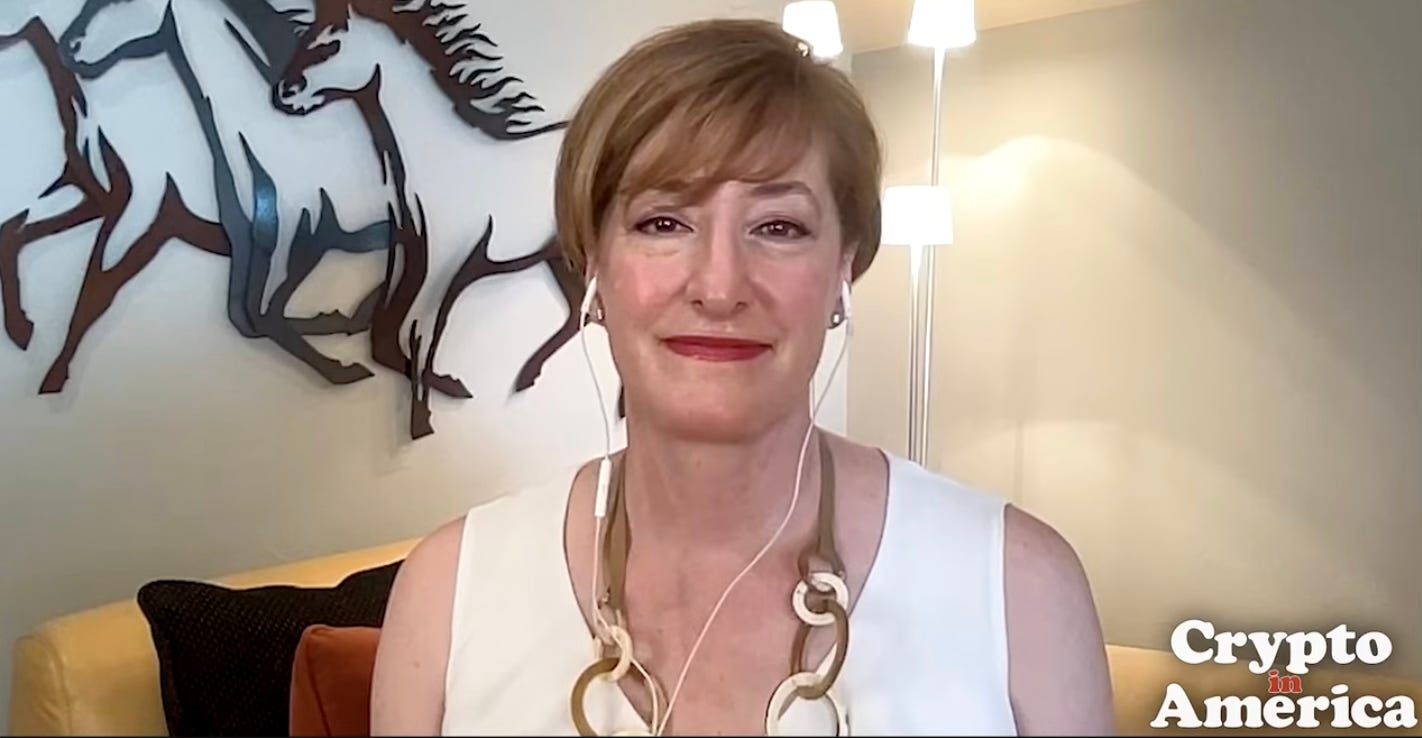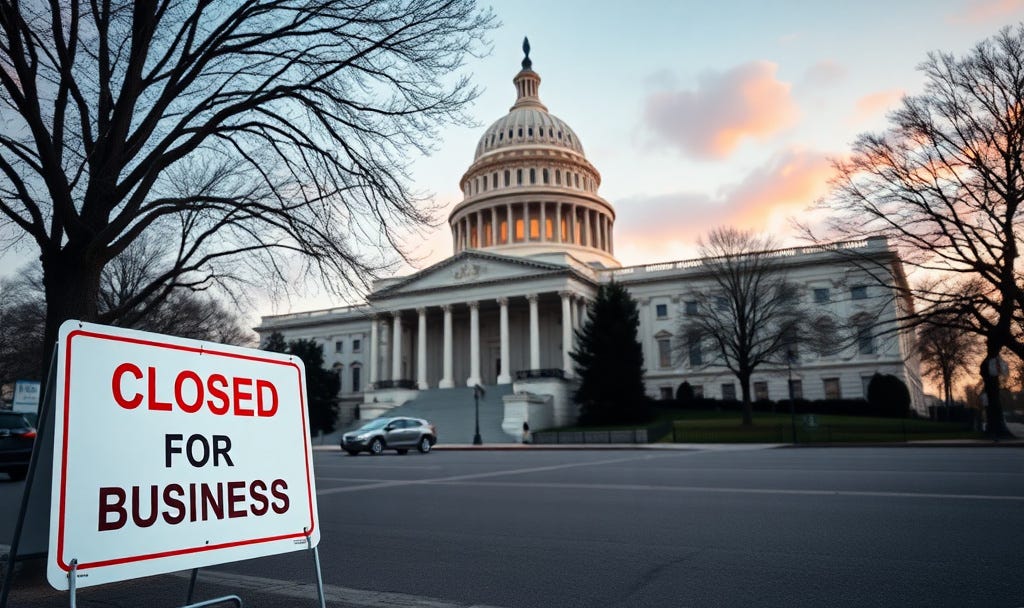Could Custodia's Latest Court Loss Be the Start of a Bigger Win?
Dissent could open the door to Supreme Court review, while “skinny master accounts” may provide an edge
Welcome to the Monday edition of the Crypto In America newsletter!
What you’ll read: What’s next for Custodia after the Tenth Circuit sides with the Fed on master accounts? Plus, what to watch this week in market structure, conferences, elections, and more.
Friday marked a new setback for Custodia Bank in its long-running legal battle with the Federal Reserve over its bid to acquire a master account.
In a 2-1 decision, a Tenth Circuit panel upheld a 2024 Wyoming district court ruling that the Federal Reserve has full discretion to deny Custodia, a Wyoming-based bank offering crypto custody and other digital asset services, access to its payment rails through a master account.
“We conclude the plain language of the relevant statutes grants Federal Reserve Banks discretion to reject master account access requests from eligible entities and, therefore, we reject Custodia’s attempt to impair the Fed’s ability to safeguard our nation’s financial system through the exercise of discretion to reject master account access,” the ruling stated.
The decision follows the Kansas City Fed’s 2023 denial of a master account to Custodia, which would have given the bank direct access to the Fed’s payment facilities, allowed it to hold reserves and settle transactions without relying on partner banks. Custodia CEO Caitlin Long challenged the decision in a Wyoming district court, which sided with the Fed, prompting the Tenth Circuit appeal.
Despite the loss, Custodia sees a silver lining in Judge Timothy Tymkovich’s dissent, which closely echoed former U.S. Solicitor General Paul Clement’s amicus brief for the appeal, arguing that the Fed’s appointments process is unconstitutional and its master-account authority unchecked.
“I do not mean to suggest that the entirety of the Federal Reserve System is unconstitutional… But if the Fed’s independence is constitutional only because it ‘follows in the distinct historical tradition of the First and Second Banks of the United States,’ the Fed would be wise not to expand its power beyond its historical limits,” Tymkovich wrote. “By denying Custodia a master account, the Kansas City Fed has unlawfully denied it access to those services which are vital to its business. That, it cannot do.”
Custodia highlighted the dissent in a statement on X after Friday’s Tenth Circuit ruling.
“While we were hoping for a win at the Tenth Circuit today, we received the next best thing — a strong dissent. It raised serious constitutional questions about the Federal Reserve …”
According to lawyers close to the case, the dissent, and its endorsement by a prominent Supreme Court lawyer like Clement, may carry enough weight to possibly be considered by the U.S. Supreme Court in determining whether the Federal Reserve’s structure and discretion over master accounts are constitutional.
But before getting the high court involved, Custodia has nearer-term options. In its statement, the company said it’s actively considering a petition for a rehearing, asking the same panel of judges to reconsider their ruling. Custodia could also pursue an ‘en banc’ petition, which would have all active judges on the Tenth Circuit hear the case, not just the original three-judge panel. En banc reviews are typically used when a case could set a major precedent or the panel’s decision is particularly significant.
Custodia could also settle with the Fed and drop the case, though it’s likely the bank would insist on securing a master account, an outcome that now seems more possible than ever, thanks to a new Fed initiative that may soon allow special types of master accounts for institutions offering payment services.
These so-called “skinny master accounts” were announced last month by Fed Governor Christopher Waller as a scaled-back version of a full master account, meant to give legally eligible crypto and fintech firms access to the central bank’s payment rails while keeping systemic risk in check.
“We could look at both Custodia and Kraken…we’ll have a much easier and quicker approval process. We won’t take six years and have to go to court,” Waller told Crypto In America in an interview.
If Custodia were to settle and obtain a master account, the Wyoming bank could gain a first-mover advantage as the first crypto firm to receive one. This could give it an edge over other crypto companies that might qualify under the Fed’s proposed skinny master account guidelines, which Waller says are still in the early stages and could take up to a year to finalize.
The financial rails of the future are being built on Avalanche. Just ask Citi, JP Morgan, Blackrock or Dinari.
Find out how Avalanche is accelerating global finance.
👀 What To Watch This Week
Government shutdown: It’s on track to become the longest government shutdown in U.S. history if it continues past Wednesday, when it will surpass the 35-day closure during President Trump’s first administration in 2018. Federal funding for the Supplemental Nutrition Assistance Program (SNAP) is temporarily safe after federal judges ordered the administration to tap contingency funds, protecting roughly 42 million Americans who rely on SNAP benefits. Last week, Trump urged the Senate to bypass the filibuster to fund the government without Democrats, but Senate Majority Leader John Thune (R-SD) said he remains committed to upholding it. Voting continues this week as Senate Democrats seem determined to block reopening until Republicans extend subsidies for more than 20 million Americans on Obamacare. Republicans are holding their ground. The House remains out of session.
Market structure: A new week means new possibilities for market structure progress. Last week, we reported that Senate Ag was close to releasing its bipartisan draft, and that still appears to be the case. We’ll be watching for any text from the committee, where Chairman John Boozman (R-AR) and Cory Booker (D-NJ) are said to have reached a deal, with some last-minute provisions being ironed out. We’re also keeping a close eye on the Senate Banking side, where bipartisan negotiations have restarted. All indications point to both committees wanting to mark up their drafts before members leave for Thanksgiving. However, with the Senate out next week for Veterans Day, only the week of November 17 remains before members leave for Turkey Day. And that’s assuming the government is back in session.
Crypto Conferences: 🍎 New York is the place to be this week.
Ripple’s flagship conference, Swell, kicks off Tuesday-Wednesday in Hudson Yards, featuring voices from crypto, traditional finance, and Washington. Headliners include Nasdaq CEO Adena Friedman, Ripple CEO Brad Garlinghouse, White House Crypto Council Executive Director Patrick Witt, and Congressman Ritchie Torres (D‑NY).
Just a short walk south of Swell, ChainLink’s conference SmartCon begins at the Metropolitan Pavilion in Chelsea. Leaders from Swift, JPMorgan, Mastercard, Aave, Consensys and more will be in attendance, with key themes including onchain activity, compliance, identity, and emerging use cases. The conference runs through Wednesday.
The Crypto In America team will be on the ground at both events.
On Friday, Web3 venture fund Bloccelerate VC will convene its 4th annual founder summit at NYC’s Harvard Club, featuring founders, CEOs, policymakers, and regulators. Speaker highlights include Fed Governor Stephen Miran, MicroStrategy CEO Phong Le, Priceline co-founder Michael Loeb, and former CFTC Chair Chris Giancarlo.
Here’s what else we’re keeping an eye on:
Tuesday
Election Day kicks off as millions of Americans head to the polls to vote for governors, state legislators, local officials, and high-stakes ballot initiatives.
Key races to watch include the open-seat gubernatorial contests in New Jersey and Virginia, and the NYC mayoral showdown between Democratic Socialist Zohran Mamdani, Independent Andrew Cuomo, and Republican Curtis Sliwa. Early voting for that race has already surpassed 700,000 ballots in a city of roughly 8.5 million residents.
Wednesday
8:15 AM: ADP releases its private-sector payroll snapshot.
Thursday
12:00 PM: Comptroller of the Currency Jonathan Gould hosts a Q&A with Consumer Bankers Association President and CEO Lindsey Johnson. Topics include the OCC’s priorities in bank supervision, the evolving landscape of bank‑fintech partnerships, and how innovation and technology can promote a safe yet competitive financial system.
3:30 PM: Fed Governor Christopher Waller discusses central banking and the future of payments at the Bank of Canada’s 2025 Annual Economic Conference in Ottawa.
Friday
3:00 PM: Fed Governor Stephen Miran discusses stablecoins at the BCVC Summit in NYC.
Remember, new editions of the Crypto In America newsletter drop every Monday, Wednesday and Friday at 7AM EST.
If you like what you’re reading, don’t forget to subscribe!







